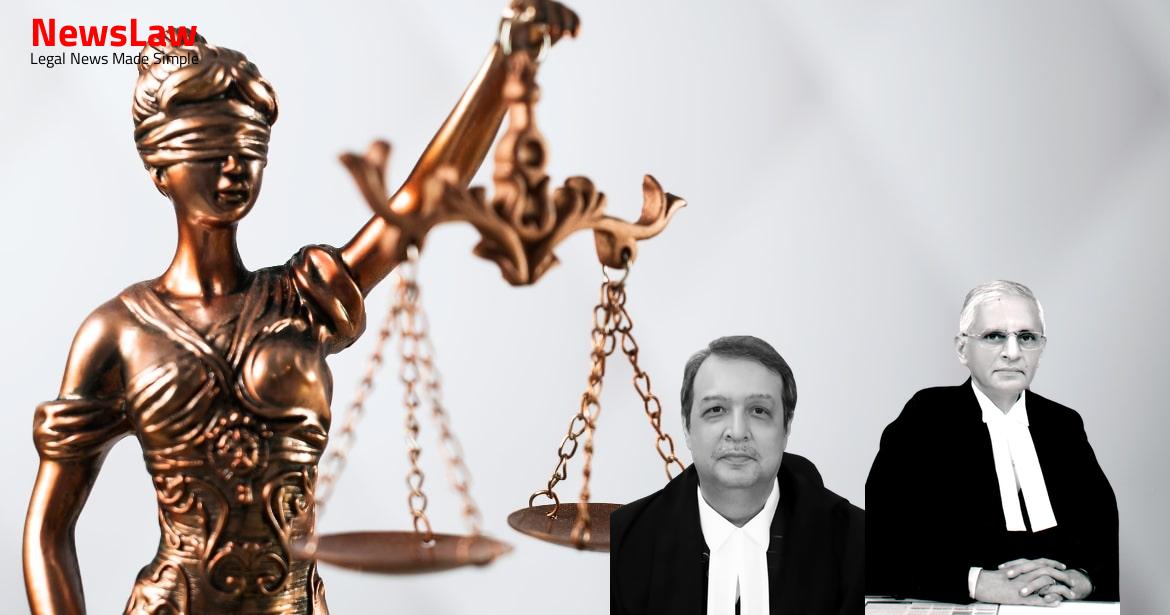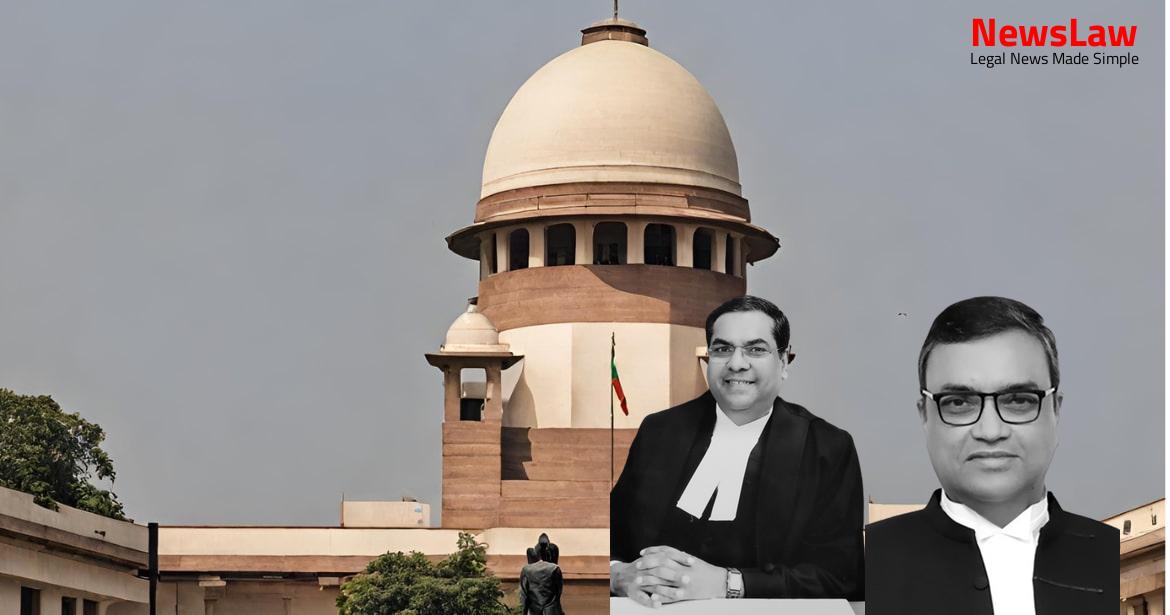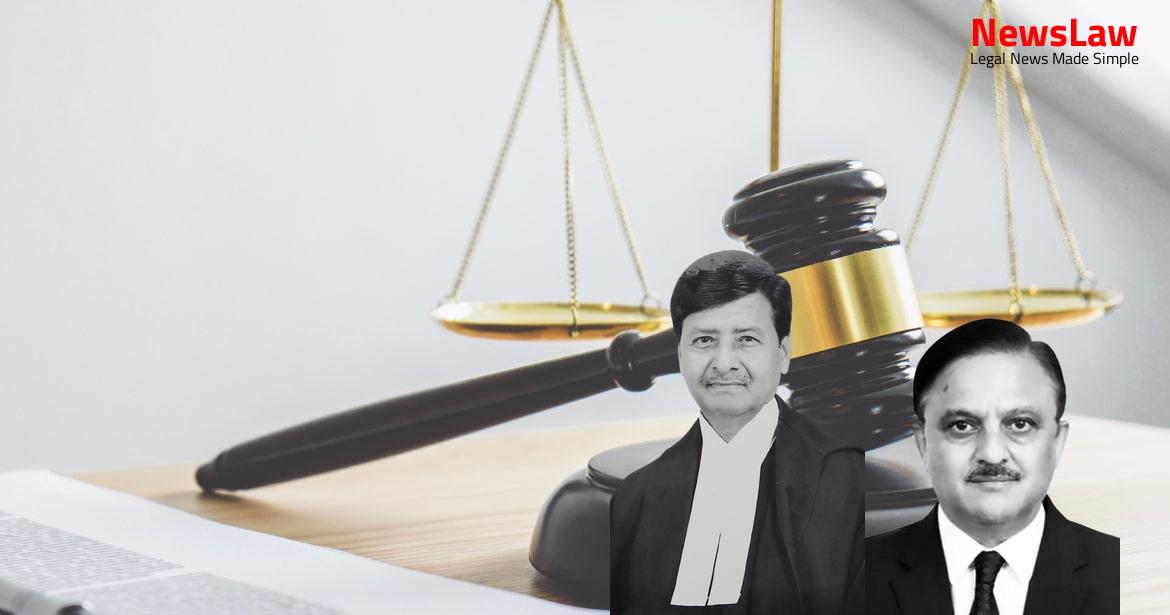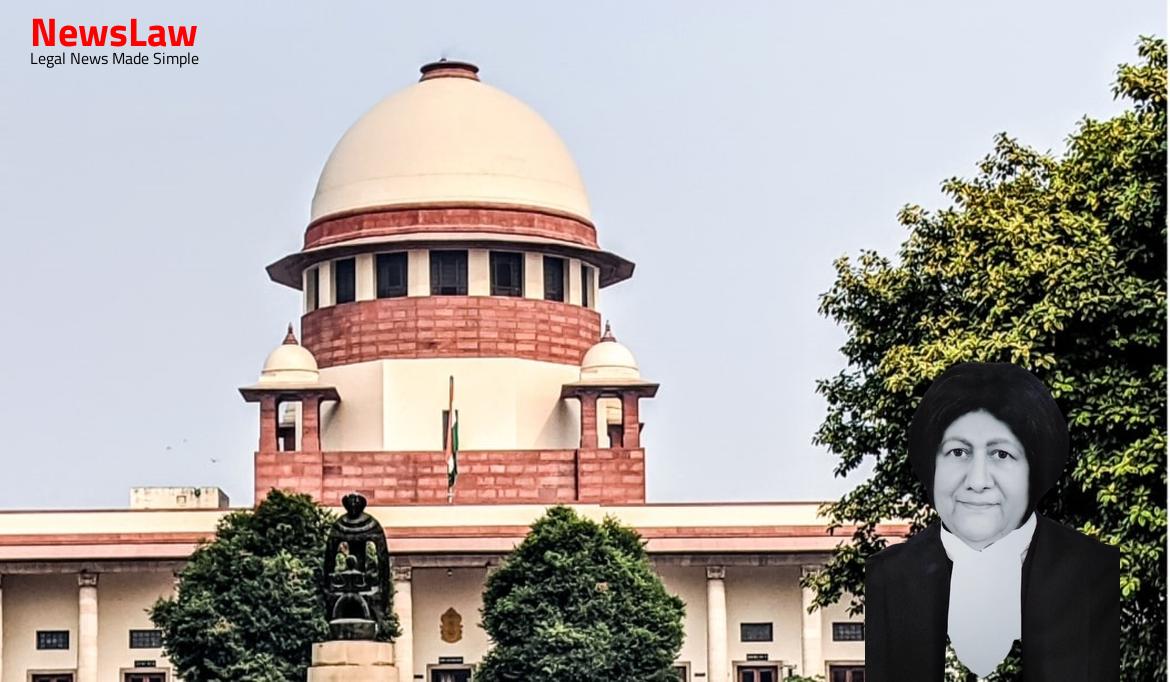Delve into the complex realm of judicial review in the context of writ petitions against private educational institutions. The High Court’s detailed legal analysis sheds light on the nuances of maintainability under Article 226 of the Constitution. Discover the key principles at play in determining the scope of writ jurisdiction in cases involving private entities.
Facts
- Division Bench of the High Court found the relationship between the college and the appellant as that of master and servant.
- The matter was remitted to the learned single Judge for further consideration on its own merits.
- The learned single Judge upheld the preliminary objection raised by the appellants and rejected the writ application as not maintainable.
- The High Court held that the Lecturer cannot claim breach of law but only breach of contract and must seek remedy through a suit for damages, not through a writ under Article 226 of the Constitution.
- The Division Bench allowed the appeal filed by respondent No. 1.
- Appellant was terminated from a private institution and has appealed the decision.
- The Society runs an all-girls school in Mhow, Indore, Madhya Pradesh.
- Appellant is currently facing health issues such as being completely bedridden, cataract disease in the left eye, and knee pain in the right leg.
- The appellant’s youngest son is suffering from a rare type of cancer, and the appellant’s wife has undergone surgery for Carnio Vertebral Junction Anomaly.
- Financial difficulties are being faced in the medical treatment of the appellant’s son.
- The appellant has taken a loan of Rupees 350,000 for an operation.
- The appellant prays for the maintainability of the writ petition and upholding of the Impugned Judgment by the High Court of Madhya Pradesh.
- Social circumstances include the health issues of family members and financial difficulties in medical treatments.
- In Ramesh Ahluwalia and Marwari Balika Vidhyalya cases, terminations of teachers/officers were challenged in writ petitions.
Issue
- Whether a writ petition under Article 226 of the Constitution of India is maintainable against a private unaided minority institution.
- Whether a service dispute in the private realm involving a private educational institution and its employee can be adjudicated in a writ petition filed under Article 226 of the Constitution.
- Clarification on the extent of judicial review in cases involving bodies performing public duty and private educational institutions.
- Analysis of the legal existence of private institutions in the absence of a statute.
Arguments
- The petitioner argued that the writ petition under Article 226 of the Constitution should be maintainable against the Committee of Management if it violates rules and byelaws laid down by the CBSE.
- The Division Bench of the High Court erred in its interpretation, according to the petitioner, by relying on previous court decisions.
- Key points emphasized by the petitioner include the private unaided minority status of the educational institution, the contractual nature of the dispute with the respondent, and the fact that the respondent sought relief against termination orders issued by the appellant as a private body.
- The petitioner requested that the appeal be allowed, and the impugned order of the Division Bench be set aside due to the merit in the appeal.
- The contention of counsel that the Court has previously allowed the issue of a writ under Article 226 to quash an order terminating services of a teacher by a similar college in Prabhakar Ramakrishna Jodh case is dismissed.
- The fact that the college or Managing Committee was not a statutory body does not hinder the High Court from issuing the writ prayed for by the appellant.
- The Court emphasized that this contention was not raised in the High Court and cannot be raised before this Court.
Also Read: Supreme Court Judgment:
Supreme Court Upholds Benefit of Input Tax Credit in Uttar Pradesh Value Added Tax Act 2008
Analysis
- The appellant No 1-Society runs a private unaided educational institution without any Governmental control over its functioning and administration.
- The respondent No 1 challenged the order of termination in appeal before the Disciplinary Committee of the appellant No 1, citing breach of contract as the cause of action.
- The writ petition filed by the respondent against a private unaided institution was found not maintainable under Article 226 of the Constitution.
- The terms and conditions mentioned in the Affiliation Byelaws have no enforceable legal force unless they are incorporated in a contract.
- The court emphasized the distinction between actions based on public law elements which are amenable to judicial review and those purely of contractual nature.
- The issue of public duty and public function in relation to private institutions was examined in the context of writ jurisdiction.
- The nature of the duty being enforced is crucial in determining the eligibility for writ jurisdiction under Article 226 of the Constitution.
- The exercise of public functions by private institutions does not automatically render them subject to writ jurisdiction unless there is a public element in the action being challenged.
- The scope of mandamus is limited to enforcement of public duty
- A body is performing a “public function” when it seeks to achieve some collective benefit for the public or a section of the public and is accepted by the public as having authority to do so
- A writ of mandamus can be issued against a private authority if it is performing public duty or public function
- Writ jurisdiction under Article 226 is valid against the government, authorities, statutory bodies, instrumentality or agency of the State, State-owned companies, private bodies substantially funded by the State, private bodies discharging public duty, or individuals/body under liability to discharge any function under a statute
- Maintenance of writ petition against private institutions is subject to the presence of a public law element
- Disciplinary procedures involving suspension and imposition of major penalties are outlined.
- The disciplinary authority must consider the employee’s representation before imposing a penalty.
- All relevant records of the case must be provided to the employee during the disciplinary process.
- Exclusive jurisdiction for disputes regarding affiliation with schools lies with courts and tribunals in Delhi.
- Affiliation and recruitment procedures for schools are defined.
- Selection committees and appointment processes for different staff categories are described.
- The managing committee of a school is responsible for issuing appointment letters to employees.
- Procedures for conducting inquiries and imposing major penalties on employees are detailed.
- Roles and responsibilities of the School Managing Committee and Head of the School are outlined.
- Code of conduct violations and procedures for imposing major penalties are specified.
- Appeals against disciplinary actions are referred to a Disciplinary Committee for review.
- Composition and roles of the Disciplinary Committee are defined.
- Counsel for the appellant relied on a decision in K. Krishnamacharyulu & Ors. Vs. Sri Venkateswara Hindu College of Engineering & Anr., (1997) 3 SCC 571.
- The attention of the Hon’ble Judges was not drawn to earlier decisions in K. Krishnamacharyulu (supra), Federal Bank (supra), Sushmita Basu v. Ballygunge Siksha Samity, (2006) 7 SCC 680, and Committee of Management, Delhi Public School v. M.K. Gandhi (supra).
- The learned single judge of the High Court was justified in holding that the original writ application filed by the respondent under Article 226 of the Constitution is not maintainable.
- This was the correct view to take based on the discussion provided.
- The Appeal Court may have committed an error in taking a contrary view.
- The decision of the High Court judge aligns with the legal principles and facts of the case.
- The respondent’s petition was deemed not maintainable under Article 226.
Decision
- Respondent No. 1 requests the Supreme Court to reject the appellant’s contention on the maintainability of the writ petition.
- Respondent No. 1 asks the Court to uphold the High Court of Madhya Pradesh, Bench at Indore’s judgment and final order from 15.12.2021.
- The appeal is allowed with no order as to costs.
- The writ application is rejected due to maintainability issues.
- The High Court’s judgment and order in Writ Appeal No. 485 of 2017 are set aside.
- The respondent No. 1 is free to pursue the issue with CBSE, the State, or other legal remedies.
- The order of the Single Judge in WP No. 1052/2017 from 10.07.2017 is overturned.
- The respondent No. 1 can explore other legal remedies as per the law.
- Any pending applications are disposed of.
Case Title: ST. MARYS EDUCATION SOCIETY Vs. RAJENDRA PRASAD BHARGAVA (2022 INSC 856)
Case Number: C.A. No.-005789-005789 / 2022



